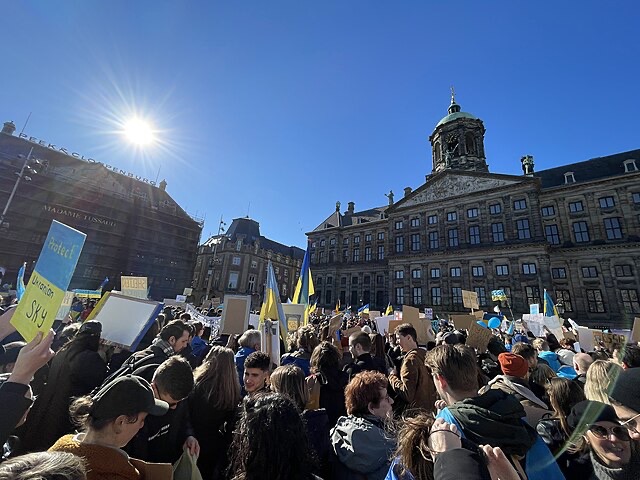A War of Territory and Identity
As the war in Ukraine grinds into its third year, the losses mount — in lives, homes, and cities reduced to rubble. But for many Ukrainians, the idea of peace isn’t as simple as stopping the shooting. It’s about sovereignty, identity, and justice.
With a new wave of international pressure — including a proposal reportedly backed by former U.S. President Donald Trump — suggesting Ukraine should accept peace by relinquishing its occupied territories, emotions are boiling over. The message from Ukraine is loud and clear: peace should not come at the price of giving up who we are.
Why “Peace for Land” Isn’t Just a Political Deal
On paper, it may seem reasonable. Stop fighting, freeze the conflict lines, recognize that Crimea and the Donbas are de facto Russian, and allow the rest of Ukraine to rebuild. But this narrative ignores the trauma, history, and human cost endured by Ukrainians for the past decade — and especially since February 2022.
This isn’t just a war over land. It’s about the right to exist freely, democratically, and independently. And for many Ukrainians, no peace is worth surrendering that.
The “De Facto Freeze” of War Zones
Russia’s Occupied Territories Since 2022
Since the invasion began, Russia has seized and held significant portions of Ukraine’s territory. These include Crimea, annexed in 2014, and major parts of Donetsk, Luhansk, Zaporizhzhia, and Kherson oblasts. Together, these regions account for nearly 20% of Ukraine’s landmass. Despite countless counteroffensives, these areas remain largely under Russian control.
Trump’s Proposal: Stop Fighting, But At What Cost?
According to Reuters, former President Donald Trump has floated a proposal: Ukraine would agree to halt hostilities, recognize the current front lines, and effectively cede control of Crimea and the Donbas to Russia. The premise? Achieve peace, save lives, and “cut losses.”
But for many Ukrainians, that deal feels like surrendering to a bully — and sending a dangerous signal to the world.
Ukrainian Sentiment: National Pride vs. Strategic Surrender
82% Reject Concessions — What the Polls Say
Despite fatigue from war, a May 2022 poll by the Kyiv International Institute of Sociology found 82% of Ukrainians opposed any land concessions to Russia, even if it meant the war would drag on. As of 2025, that number has shifted slightly — with about 39% now open to “discussing” compromises. Still, the majority remains firmly against it.
This isn’t just nationalism. It’s personal. Many have family in occupied zones, lost loved ones to Russian attacks, or served in the armed forces. Giving up land feels like saying their sacrifice was for nothing.
Why It Feels Like Betrayal to Millions
Ask a Ukrainian from Mariupol or Kherson what “peace for land” means, and you’ll likely hear: “Why should we reward Russia for destroying our homes?”
These aren’t abstract concepts — they’re homes, schools, and cemeteries. Places filled with memory and meaning. For most Ukrainians, giving them away feels like betraying history, identity, and justice.
The Psychological Weight of Conceding Territory
Stories from Mariupol, Kherson, and Bakhmut
From Mariupol’s Azovstal steelworks to the flattened center of Bakhmut, Ukrainians have watched their cities burn. Some managed to escape, others remain trapped under occupation.
Giving up these areas isn’t just a political compromise — it’s abandoning citizens who may face persecution, forced assimilation, or worse under Russian rule.
Collective Memory and Historical Trauma
Ukraine has a long memory — of Holodomor, of Soviet repression, of centuries of being denied independence. Territorial concessions awaken that trauma. Many see them as a step back into colonization, a past Ukraine has fought hard to leave behind.
Zelenskyy’s Position and Legal Barriers
“Not an Option”: Ukraine’s Constitution on Sovereignty
President Volodymyr Zelenskyy has repeatedly said there can be no peace deal that includes ceding territory. The Ukrainian constitution enshrines territorial integrity — and any amendment would require a nationwide referendum.
And there’s the rub: most Ukrainians would vote “no.”
No Referendum, No Deal
Without public approval, any deal involving land concessions is unconstitutional. That’s not just a political roadblock — it’s a clear signal that even if world leaders pressure Ukraine, its people may never accept such a deal.
What the West Wants: Realpolitik vs. Principle
Western Diplomats Push for “Pragmatism”
Behind closed doors, some Western officials have reportedly urged Ukraine to consider ending the war by freezing lines and focusing on rebuilding. But critics argue that this ignores the moral cost of such a trade-off.
Risks of Rewarding Aggression
Accepting territorial loss would signal to leaders like Vladimir Putin that wars of conquest work. Today Ukraine. Tomorrow Taiwan? Georgia? Moldova? The global implications could be massive.



